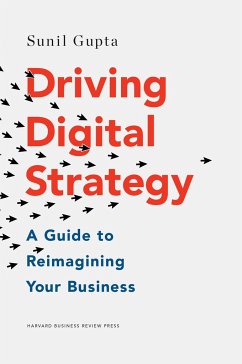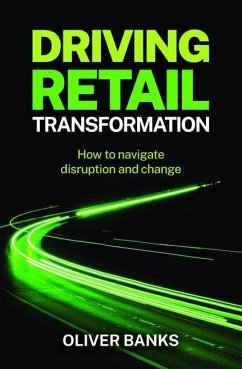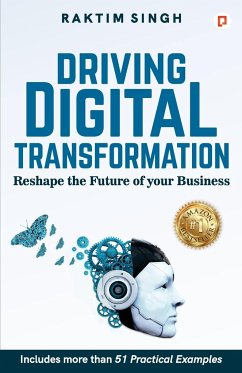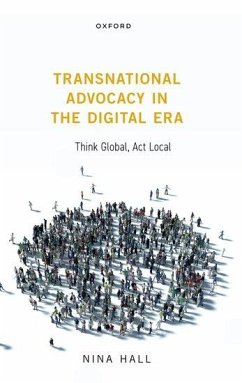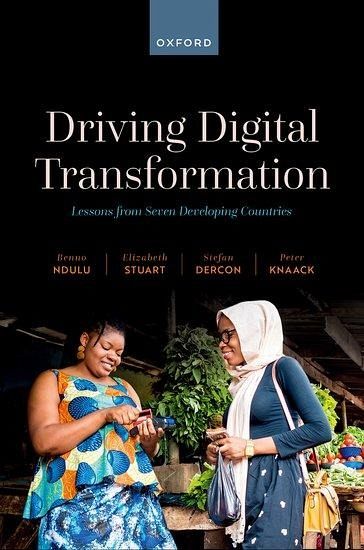
Benno Ndulu (Formerly Visiting Associa Formerly Visiting AssociateElizabeth Stuart (Executive Director, Digital Pathways at Oxford, EStefan Dercon (Professor of Economic Professor of Economic Policy
Gebundenes Buch
Driving Digital Transformation
Lessons from Seven Developing Countries
Versandkostenfrei!
Versandfertig in über 4 Wochen

PAYBACK Punkte
22 °P sammeln!




This book explores seven developing countries' use of technology to begin reforming the economy and government. Foregrounding the voices of policymakers and participants, it documents and critically assesses government efforts to kick-start digital transformation, and offers an exposition of the process of policymaking in the 2020s.
Benno Ndulu served as Governor of the Central Bank of Tanzania from 2008 to 2018. Following his PhD degree in economics from Northwestern University, Ndulu taught economics at the University of Dar es Salaam, before joining the World Bank as a lead economist. He published and taught widely on growth, regional integration, adjustment, governance, trade, and investments. Most recently, he served as Academic Co-director of the Pathways for Prosperity Commission as a Visiting Associate of Oxford University's Blavatnik School of Government. He passed away in February 2021. Elizabeth Stuart is a development practitioner. Before leading the Pathways to Prosperity Commission on Inclusive Development and its successor research and policy centre at Oxford University's Blavatnik School of Government, she has been variously Director of Policy and Research at Save the Children UK; Director of the Growth, Poverty and Inequality programme at the Overseas Development Institute; and Head of Oxfam International's Washington Office. Stefan Dercon is Professor of Economic Policy at the Blavatnik School of Government and the Economics Department, and a Fellow of Jesus College. He is also Director of the Centre for the Study of African Economies. He combines his academic career with work as a policy advisor, providing strategic economic and development advice. Between 2011 and 2017, he was Chief Economist of the Department of International Development (DFID), and he has served as Academic Co-director of the Pathways for Prosperity Commission. Since 2020, he has been the Development Policy Advisor to successive Foreign Secretaries at the UK's Foreign, Commonwealth and Development Office. Peter Knaack is an Adjunct Professor at the School of International Service, American University. He is also a Senior Research Associate at the Global Economic Governance Programme at the University of Oxford, Research Associate at the Centre for Sustainable Finance at SOAS, University of London, and Associate at the Council on Economic Policies, a Swiss think tank. His research explores global financial governance, with a focus on inclusive green finance, the political economy of global banking regulation, China's role in global financial governance, and the growing tension between nation-states and transgovernmental networks over the authority to govern cross-border economic activity.
Produktdetails
- Verlag: Oxford University Press
- Seitenzahl: 240
- Erscheinungstermin: 30. Juni 2023
- Englisch
- Abmessung: 242mm x 164mm x 22mm
- Gewicht: 492g
- ISBN-13: 9780192872845
- ISBN-10: 0192872842
- Artikelnr.: 66691609
Herstellerkennzeichnung
Libri GmbH
Europaallee 1
36244 Bad Hersfeld
gpsr@libri.de
Für dieses Produkt wurde noch keine Bewertung abgegeben. Wir würden uns sehr freuen, wenn du die erste Bewertung schreibst!
Eine Bewertung schreiben
Eine Bewertung schreiben
Andere Kunden interessierten sich für




